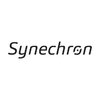Filter interviews by
Bosch Global Software Technologies Associate Software Engineer Interview Questions and Answers
49 Interview questions
Implement a function to reverse a given string and return the reversed string.
Use built-in functions: In Python, you can use slicing: `reversed_string = original_string[::-1]`.
Iterative approach: Loop through the string from the end to the beginning and build the reversed string.
Recursive approach: Define a function that calls itself with a smaller substring until it reaches the base case.
Example: For input 'hello...
malloc is used to allocate memory block of specified size, while calloc initializes the allocated memory block with zero values.
malloc does not initialize the allocated memory, while calloc initializes it to zero
malloc takes one argument specifying the size of memory block to allocate
calloc takes two arguments - number of elements to allocate and size of each element
Example: int *ptr = (int*)malloc(5 * sizeof(int)...
Yes, I am comfortable with Bangalore.
I have lived in Bangalore for the past 3 years and am familiar with the city.
I have friends and family in Bangalore who I visit regularly.
I have explored different areas of Bangalore and am comfortable navigating the city.
I enjoy the culture, food, and lifestyle of Bangalore.
Print duplicate elements in an array of strings
Iterate through the array and store elements in a HashMap with element as key and count as value
Print elements with count greater than 1 as duplicates
What people are saying about Bosch Global Software Technologies





Use a sorting algorithm like bubble sort or quicksort to arrange numbers in ascending order.
Implement a sorting algorithm like bubble sort, selection sort, insertion sort, quicksort, etc.
For example, in bubble sort, compare adjacent elements and swap them if they are in the wrong order.
Repeat this process until the array is sorted in ascending order.
The virtual keyword in C++ is used to declare a member function in a base class that can be overridden in a derived class.
Virtual keyword is used to achieve runtime polymorphism in C++
Virtual functions are declared in a base class and can be overridden in derived classes
When a virtual function is called, the actual function that gets executed is determined at runtime based on the type of object
A MOSFET (Metal-Oxide-Semiconductor Field-Effect Transistor) is a key electronic component used for switching and amplifying signals.
MOSFETs are widely used in power electronics, such as in power supplies and motor controllers.
They have three terminals: Gate, Drain, and Source, which control the flow of current.
MOSFETs can be classified into two types: N-channel and P-channel, based on the type of charge carriers.
...
Array is a fixed-size data structure while list is a dynamic data structure.
Arrays have a fixed size while lists can grow or shrink dynamically.
Arrays store elements of the same data type while lists can store elements of different data types.
Arrays are accessed using an index while lists are accessed using an iterator.
Examples of arrays include int[], char[], and boolean[] while examples of lists include ArrayLis...
Yes, Python has array data structure in it.
Python has a built-in array module that provides an array() object
Arrays can be of any type, such as integers, floating-point numbers, and strings
Arrays are mutable and can be modified using various methods
Inline block is similar to inline but can have width and height properties. Normal block takes up full width and creates a new line.
Inline block elements can be aligned horizontally and vertically within a line
Normal block elements take up full width and create a new line
Inline block elements can have width and height properties
Examples of inline block elements are images and buttons
Examples of normal block elemen...
Bosch Global Software Technologies Associate Software Engineer Interview Experiences
44 interviews found
I applied via Referral and was interviewed in Dec 2024. There were 3 interview rounds.
Topics on electronics and C programming
(4 Questions)
- Q1. Questions on simple python programs and electronics basics
- Q2. Question on simple linked list
- Q3. Program for fibonacci seq
- Ans.
Program to generate Fibonacci sequence
Start with two initial numbers, 0 and 1
Add the previous two numbers to get the next number in the sequence
Repeat this process to generate the Fibonacci sequence
Example: 0, 1, 1, 2, 3, 5, 8, 13, ...
- Q4. Questions on mosfets
(1 Question)
- Q1. Why you would like to join the company, and other questions
Interview Preparation Tips
I applied via Great Learning and was interviewed in Sep 2024. There were 2 interview rounds.
20 Questions with choose the correct answers
(2 Questions)
- Q1. Tell me details about your major project
- Ans.
Developed a web-based inventory management system for a retail company
Used Java for backend development
Implemented responsive design using HTML, CSS, and JavaScript
Integrated database management system for storing product information
- Q2. Tell me about your self
- Ans.
I am a recent graduate with a degree in Computer Science and a passion for software development.
Recent graduate with a degree in Computer Science
Passionate about software development
Experience with programming languages like Java and Python
Basic reasoning question of mediate level
(2 Questions)
- Q1. Output of a C++ program
- Ans.
The output of a C++ program depends on the code logic and input provided.
The output can be a single value, multiple values, or even no output at all.
It is important to understand the code logic and input data to predict the output.
Example: If the program calculates the sum of two numbers, the output will be the sum of those numbers.
- Q2. Difference between malloc and calloc
- Ans.
malloc is used to allocate memory block of specified size, while calloc initializes the allocated memory block with zero values.
malloc does not initialize the allocated memory, while calloc initializes it to zero
malloc takes one argument specifying the size of memory block to allocate
calloc takes two arguments - number of elements to allocate and size of each element
Example: int *ptr = (int*)malloc(5 * sizeof(int));
Exa...
(2 Questions)
- Q1. Comfortable with Bangalore
- Ans.
Yes, I am comfortable with Bangalore.
I have lived in Bangalore for the past 3 years and am familiar with the city.
I have friends and family in Bangalore who I visit regularly.
I have explored different areas of Bangalore and am comfortable navigating the city.
I enjoy the culture, food, and lifestyle of Bangalore.
- Q2. Why you want to join Bosch
- Ans.
I want to join Bosch because of its reputation for innovation, global presence, and opportunities for growth.
Bosch is known for its cutting-edge technology and innovation in various industries.
I am impressed by Bosch's global presence and the opportunity to work on projects with a diverse team.
I believe Bosch offers great opportunities for career growth and development.
Skills evaluated in this interview
The tests had three main sections logical, quantitive and verbal.
(2 Questions)
- Q1. Print the duplicate elements in an array
- Ans.
Print duplicate elements in an array of strings
Iterate through the array and store elements in a HashMap with element as key and count as value
Print elements with count greater than 1 as duplicates
- Q2. About Projects - Built and the Technologies.
Skills evaluated in this interview
I applied via Campus Placement
1 - 2 hours with negative marking, It was conducted by HirePro
(1 Question)
- Q1. Bubble Sort, Selection Sort, Asked about the college project.
(1 Question)
- Q1. Why do you like to join Bosch as a fresher and not other company?
I applied via Campus Placement and was interviewed in Dec 2023. There were 2 interview rounds.
(2 Questions)
- Q1. Aptitude questions,basic electronics, RTOS, 8051, 8085, 8086 microprocessors, digital electronics, control systems, signals and systems, and digital communication
- Q2. Two coding questions
(2 Questions)
- Q1. Basics of electronics such as diodes, transistors, and transformers
- Q2. Code to sort the numbers in ascending order
- Ans.
Use a sorting algorithm like bubble sort or quicksort to arrange numbers in ascending order.
Implement a sorting algorithm like bubble sort, selection sort, insertion sort, quicksort, etc.
For example, in bubble sort, compare adjacent elements and swap them if they are in the wrong order.
Repeat this process until the array is sorted in ascending order.
Interview Preparation Tips
- Basic electronics
- microprocessors
- Control systems
- Signals and systems
Skills evaluated in this interview
(1 Question)
- Q1. Aptitude and one coding questions
(1 Question)
- Q1. Interview for basic DSA
Interview Preparation Tips
I applied via Campus Placement
(1 Question)
- Q1. Question related electrical and some coding based question
(1 Question)
- Q1. Question about myself and reallocating
Technical questions
(2 Questions)
- Q1. Good as per branch
- Q2. Good as per branch background
(2 Questions)
- Q1. Introduction about yourself
- Q2. Family background
Interview Preparation Tips
Aptitude questions logical reasoning
(1 Question)
- Q1. Oops using c++ / c program
- Ans.
Object-oriented programming principles using C++ or C.
Encapsulation: bundling data with methods that operate on that data.
Inheritance: creating new classes from existing classes.
Polymorphism: ability for objects to be treated as instances of their parent class.
Abstraction: hiding complex implementation details from the user.
Example: Creating a class 'Car' with methods like 'startEngine' and 'drive'.
Skills evaluated in this interview
Bosch Global Software Technologies Interview FAQs
Some of the top questions asked at the Bosch Global Software Technologies Associate Software Engineer interview -
The duration of Bosch Global Software Technologies Associate Software Engineer interview process can vary, but typically it takes about less than 2 weeks to complete.
Tell us how to improve this page.
Bosch Global Software Technologies Interviews By Designations
- Bosch Global Software Technologies Associate Software Engineer Interview Questions
- Bosch Global Software Technologies Senior Engineer Interview Questions
- Bosch Global Software Technologies Senior Software Engineer Interview Questions
- Bosch Global Software Technologies Software Engineer Interview Questions
- Bosch Global Software Technologies Software Developer Interview Questions
- Bosch Global Software Technologies Specialist Interview Questions
- Bosch Global Software Technologies Intern Interview Questions
- Bosch Global Software Technologies Project Trainee Interview Questions
- Show more
Interview Questions for Popular Designations
- Software Developer Interview Questions
- Software Engineer Interview Questions
- Senior Software Engineer Interview Questions
- Senior Engineer Interview Questions
- System Engineer Interview Questions
- Project Engineer Interview Questions
- Associate Consultant Interview Questions
- Senior Software Developer Interview Questions
- Show more
Overall Interview Experience Rating
based on 28 interview experiences
Difficulty level
Duration
Top Skills for Bosch Global Software Technologies Associate Software Engineer
Associate Software Engineer Interview Questions from Similar Companies

Bosch Global Software Technologies Associate Software Engineer Reviews and Ratings
based on 254 reviews
Rating in categories
|
Senior Software Engineer
6.7k
salaries
| ₹6.8 L/yr - ₹18.5 L/yr |
|
Senior Engineer
2.9k
salaries
| ₹7.6 L/yr - ₹18.1 L/yr |
|
Software Engineer
2.9k
salaries
| ₹5 L/yr - ₹10.2 L/yr |
|
Associate Software Engineer
2k
salaries
| ₹4 L/yr - ₹8.5 L/yr |
|
Specialist
1.5k
salaries
| ₹15.7 L/yr - ₹28 L/yr |

Mercedes-Benz Research and Development India

Capgemini

Accenture

Genpact
- Home >
- Interviews >
- Bosch Global Software Technologies Interview Questions


















